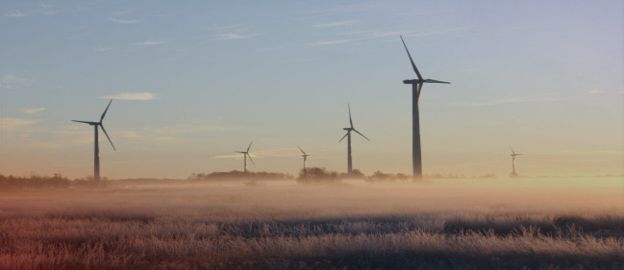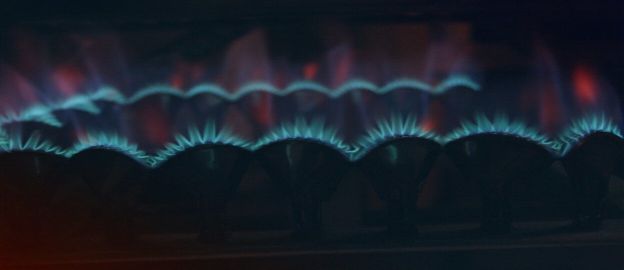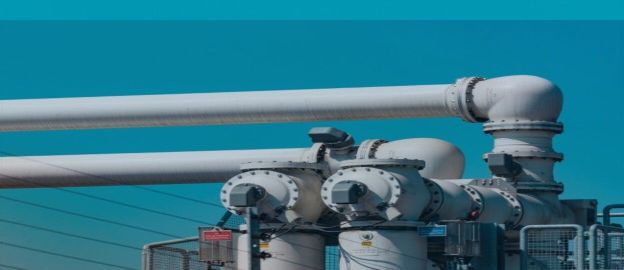Anatomy of Dependence: How to Eliminate Rosatom from Europe

EU countries depend on cooperation with Russia in the nuclear field. This has resulted in Rosatom not being sanctioned after the Russian full-scale invasion of Ukraine, and trade in this sector is growing. This situation is disadvantageous for the EU and increases its vulnerability to Russian blackmail. Moreover, it strengthens the Russian military. The EU should increase its efforts to diversify supplies and build its own capabilities in the nuclear sector.
Read More
Anatomy of Dependence: How to Eliminate Rosatom from Europe
EU countries depend on cooperation with Russia in the nuclear field. This has resulted in Rosatom not being sanctioned after the Russian full-scale invasion of Ukraine, and trade in this sector is growing. This situation is disadvantageous for the EU and increases its vulnerability to Russian blackmail. Moreover, it strengthens the Russian military. The EU should increase its efforts to diversify supplies and build its own capabilities in the nuclear sector.

Past time for gas?

Over the past two years, natural gas has become a high-risk fuel: it is subject to huge price fluctuations and, following the disruption of supplies from Russia, competition for imports of this resource from other sources is increasing. Not long ago, there were plans in Poland to significantly increase the consumption of natural gas throughout the economy - by 75% by 2035. It was supposed to be a transition fuel.
Read More
Past time for gas?
Over the past two years, natural gas has become a high-risk fuel: it is subject to huge price fluctuations and, following the disruption of supplies from Russia, competition for imports of this resource from other sources is increasing. Not long ago, there were plans in Poland to significantly increase the consumption of natural gas throughout the economy - by 75% by 2035. It was supposed to be a transition fuel.

Energy transition in Poland | 2023 edition

2022 was another year of unexpected events. Russia’s full-scale invasion of Ukraine changed Europe’s approach to fossil fuel imports, particularly from Russia. The resulting energy crisis triggered by high gas prices and the decline in nuclear and hydroelectric production led to record high energy prices across Europe. These events are changing the way European countries look at the energy transition. Meanwhile, the modernisation of the Polish energy sector is still very slow. An overview of the increasingly comprehensive data on the energy sector is published by Forum Energii in the sixth edition of the report ‘Energy Transition in Poland. Edition 2023’.
Read More
Energy transition in Poland | 2023 edition
2022 was another year of unexpected events. Russia’s full-scale invasion of Ukraine changed Europe’s approach to fossil fuel imports, particularly from Russia. The resulting energy crisis triggered by high gas prices and the decline in nuclear and hydroelectric production led to record high energy prices across Europe. These events are changing the way European countries look at the energy transition. Meanwhile, the modernisation of the Polish energy sector is still very slow. An overview of the increasingly comprehensive data on the energy sector is published by Forum Energii in the sixth edition of the report ‘Energy Transition in Poland. Edition 2023’.

Billions of Euros for LNG and LPG still flowing from the EU to Russia

The EU embargo on Russian fuels did not extend to natural gas (including LNG, liquefied natural gas) or LPG (liquefied petroleum gas). In 2022 alone, EU countries paid as much as 16 billion euros for Russian LNG, a record high. Poland did not import any LNG from Russia, however it is the largest importer of LPG in the entire EU. In 2022, Poland spent about 700 million euros on Russian LPG. In this article, Forum Energii will explain how to close the loopholes in the EU embargo on Russian resources to finally eliminate them from the EU market.
Read More
Billions of Euros for LNG and LPG still flowing from the EU to Russia
The EU embargo on Russian fuels did not extend to natural gas (including LNG, liquefied natural gas) or LPG (liquefied petroleum gas). In 2022 alone, EU countries paid as much as 16 billion euros for Russian LNG, a record high. Poland did not import any LNG from Russia, however it is the largest importer of LPG in the entire EU. In 2022, Poland spent about 700 million euros on Russian LPG. In this article, Forum Energii will explain how to close the loopholes in the EU embargo on Russian resources to finally eliminate them from the EU market.

Russian oil disappearing from Europe

In 2021, about a quarter of the oil used in the EU, about €48 billion worth in total, came from Russia. The invasion of Ukraine prompted EU countries to impose sanctions on this commodity. However, the sanctions contain loopholes that have made Poland the EU’s largest importer of Russian oil. While sealing the sanctions regime is possible, electrification of transportation will in the long run safeguard against the risk of replacing dependence on Russia with dependence on other petrostates.
Read More
Russian oil disappearing from Europe
In 2021, about a quarter of the oil used in the EU, about €48 billion worth in total, came from Russia. The invasion of Ukraine prompted EU countries to impose sanctions on this commodity. However, the sanctions contain loopholes that have made Poland the EU’s largest importer of Russian oil. While sealing the sanctions regime is possible, electrification of transportation will in the long run safeguard against the risk of replacing dependence on Russia with dependence on other petrostates.

Renewables can reduce fuel imports

Last year the import of gas, oil and coal cost Poland PLN 89 billion. This year, it will be much more - by the end of June it already amounted to PLN 85 billion. The supply crunch and spike in fuel prices have become the source of an economic and energy crisis, and a means of exerting pressure on Europe. Meanwhile, renewables not only reduce emissions and energy prices, but also import dependency on energy resources.
Read More
Renewables can reduce fuel imports
Last year the import of gas, oil and coal cost Poland PLN 89 billion. This year, it will be much more - by the end of June it already amounted to PLN 85 billion. The supply crunch and spike in fuel prices have become the source of an economic and energy crisis, and a means of exerting pressure on Europe. Meanwhile, renewables not only reduce emissions and energy prices, but also import dependency on energy resources.

Is the Kremlin turning off the gas tap? Time to exclude gas and coal from households

How to prepare households for an energy war with Russia? Gazprom is suspending gas supplies to Poland under the Yamal contract. This is no great surprise. At the end of this year, Poland was going to give up buying Russian gas anyway. Physically, there is unlikely to be a shortage of gas, but Poland is entering a period of high prices, which will limit the use of this raw material. The role of the state should be to wisely support society in smoothly passing through the crisis. Without reducing demand in sectors where it is possible, this will be difficult.
Read More
Is the Kremlin turning off the gas tap? Time to exclude gas and coal from households
How to prepare households for an energy war with Russia? Gazprom is suspending gas supplies to Poland under the Yamal contract. This is no great surprise. At the end of this year, Poland was going to give up buying Russian gas anyway. Physically, there is unlikely to be a shortage of gas, but Poland is entering a period of high prices, which will limit the use of this raw material. The role of the state should be to wisely support society in smoothly passing through the crisis. Without reducing demand in sectors where it is possible, this will be difficult.

Energy transition in Poland | 2022 Edition

On top of the economic slowdown in 2020 caused by the COVID-19 pandemic, 2021 was the next year when the cards dealt unexpected circumstances that diverged from the previous years of stability. In Europe, we experienced an energy crisis marked by sharp spikes in gas prices and CO2 emission costs. The wartime reality of 2022 means even more uncertainty and market volatility with energy security and independence from imported raw materials becoming the most important topics. Poland continues drifting along in the modernisation of the energy sector, as clearly indicated by data collected by Forum Energii in its annual report “Energy Transition in Poland”.
Read More
Energy transition in Poland | 2022 Edition
On top of the economic slowdown in 2020 caused by the COVID-19 pandemic, 2021 was the next year when the cards dealt unexpected circumstances that diverged from the previous years of stability. In Europe, we experienced an energy crisis marked by sharp spikes in gas prices and CO2 emission costs. The wartime reality of 2022 means even more uncertainty and market volatility with energy security and independence from imported raw materials becoming the most important topics. Poland continues drifting along in the modernisation of the energy sector, as clearly indicated by data collected by Forum Energii in its annual report “Energy Transition in Poland”.

The end of energy resource imports from Russia?

On February 24, Russia started the Ukrainian war. Nothing will be the same again. Russia's brutal attack made the ongoing conflict around energy resources all the more obvious. In 2021 alone Russia could have earned PLN 500 billion (or $120 billion). from the export of energy resources. This revenue funds the Kremlin's military spending. Now we are considering whether giving up Russian fossil fuels is possible. Undoubtedly, this would be a radical solution with far-reaching and not entirely known consequences. If this were to happen, solidarity and close cooperation within the EU would be more important than ever before. In this article, we analyze what options Poland has to break its energy dependence on Russia.
Read More
The end of energy resource imports from Russia?
On February 24, Russia started the Ukrainian war. Nothing will be the same again. Russia's brutal attack made the ongoing conflict around energy resources all the more obvious. In 2021 alone Russia could have earned PLN 500 billion (or $120 billion). from the export of energy resources. This revenue funds the Kremlin's military spending. Now we are considering whether giving up Russian fossil fuels is possible. Undoubtedly, this would be a radical solution with far-reaching and not entirely known consequences. If this were to happen, solidarity and close cooperation within the EU would be more important than ever before. In this article, we analyze what options Poland has to break its energy dependence on Russia.

Poland has spent more than a trillion zloty (EUR 220 billion) on fossil fuel imports since 2000

In recent months, rising energy prices have caused panic among policymakers. Gas and coal prices on world markets are at record highs, and crude oil is also becoming more expensive. In addition, Poland has become one of the EU countries most dependent on fossil fuel imports.
Read More
Poland has spent more than a trillion zloty (EUR 220 billion) on fossil fuel imports since 2000
In recent months, rising energy prices have caused panic among policymakers. Gas and coal prices on world markets are at record highs, and crude oil is also becoming more expensive. In addition, Poland has become one of the EU countries most dependent on fossil fuel imports.
